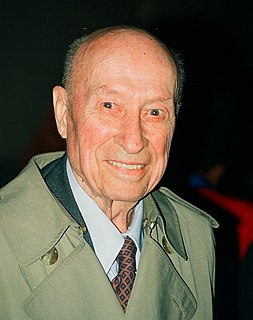A Quote by Harry Callahan
The difference between the casual impression and the intensified image is about as great as that separating the average business letter from a poem. If you choose your subject selectively—intuitively—the camera can write poetry.
Related Quotes
The difference between an amateur and a professional photographer is that the amateur thinks the camera does the work. And they treat the camera with a certain amount of reverence. It is all about the kind of lens you choose, the kind of film stock you use… exactly the sort of perfection of the camera. Whereas, the professional the real professional – treats the camera with unutterable disdain. They pick up the camera and sling it aside. Because they know it’s the eye and the brain that count, not the mechanism that gets between them and the subject that counts.
I loathe the trivialization of poetry that happens in creative writing classes. Teachers set exercises to stimulate subject matter: Write a poem about an imaginary landscape with real people in it. Write about a place your parents lived in before you were born. We have enough terrible poetry around without encouraging more of it.
The difference between the best worker on computer hardware and the average may be 2 to 1, if you're lucky. With automobiles, maybe 2 to 1. But in software, it's at least 25 to 1. The difference between the average programmer and a great one is at least that. The secret of my success is that we have gone to exceptional lengths to hire the best people in the world. And when you're in a field where the dynamic range is 25 to 1, boy, does it pay off.
The Divine Comedy is a political poem and when you say poetry is not about - he's always quoted out of context, that "poetry makes nothing happen," that doesn't mean you shrug your shoulders and don't try to make anything happen. And Dante felt that poetry was engaged, there was a point of view; it's not my point of view, it's orthodox medieval Christianity, and I have my troubles with that. He didn't feel that you could just rule out so important a section of life - we care about these things, and it's out of caring about them that we write poetry.
One day while studying a Yeats poem I decided to write poetry the rest of my life. I recognized that a single short poem has room for history, music, psychology, religious thought, mood, occult speculation, character, and events of one's own life. I still feel surprised that such various substances can find shelter and nourishment in a poem. A poem in fact may be a sort of nourishing liquid, such as one uses to keep an amoeba alive. If prepared right, a poem can keep an image or a thought or insights on history or the psyche alive for years, as well as our desires and airy impulses.
A successful poem says what a poet wants to say, and more, with particular finality. The remarks he makes about his poems are incidental when the poem is good, or embarrassing or absurd when it is bad and he is not permitted to say how the good poem is good, and may never know how the bad poem is bad. It is better to write about other people's poetry.
Darling, You asked me to write you a letter, so I am writing you a letter. I do not know why I am writing you this letter, or what this letter is supposed to be about, but I am writing it nonetheless, because I love you very much and trust that you have some good purpose for having me write this letter. I hope that one day you will have the experience of doing something you do not understand for someone you love. Your father
ONCE WHEN I WAS ninth grade i had to write a paper on a poem. One of the lines was"If your eyes weren't open you wouldn't know the difference between dreaming and waking' It hadn't meant meant much to me at the time. After all there'd been a guy in the class that i liked so how could i be expected to pay attention to literary analysis? Now three year later i understand the poem perfectly.


































